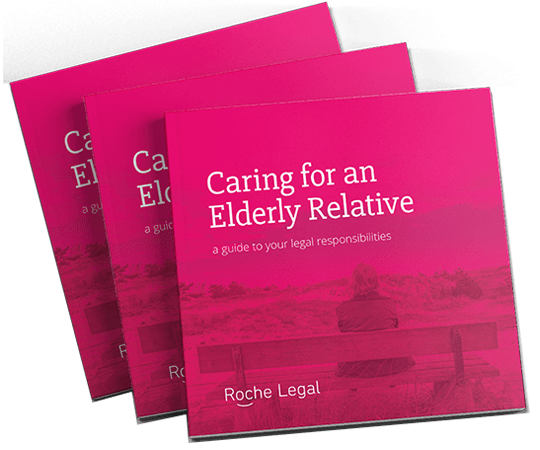New guidance has been issued by the Office of the Public Guardian (OPG) to help Deputies who are looking after the affairs of a loved one, in all aspects of making family care payments. That is, where the appointed Deputy or someone else connected to the person who is being looked after, is being paid from that person’s funds to provide that care.
The guidance covers topics such as, factors to consider when deciding whether to make a payment; how much the payment should be; and the best practice for organising one.
Before delving deeper into the guidance itself, it may be helpful to explain some of the above terms in greater detail. That way you can be clear on whether the new advice could help you:
- The Office of the Public Guardian (OPG): The purpose of the OPG is to protect people who have lost the mental capacity to make decisions for themselves. The OPG works closely with the Court of Protection (COP) and, broadly speaking, provides the COP with administrative support.
- Deputies: A Deputy is appointed by the COP to act on a day-to-day basis for a person who lacks mental capacity. Whilst they are empowered and appointed by the COP, it is the OPG that manages and monitors them in their duties. Deputies can either be professionals who are paid a fee for their work or, more commonly, lay people with a connection to the person lacking capacity. The newly-published guidance is intended to assist both types of Deputy in their role.
- Family care payments: As the name would suggest, these are payments made to someone caring for a person who has lost mental capacity. The idea behind such payments is to ease the financial burden on a carer so that the care and assistance they provide can continue. There is no actual requirement for there to be a familial connection between the carer and their charge and so these payments are sometimes called ‘gratuitous care payments’. The guidance illustrates the kinds of arrangements that come under this definition. Generally speaking, it covers arrangements where the care is informal, provided through natural love and affection, without formal hours and with no contractual basis.
The guidance notes state they are intended for Deputies acting under a finance and property order. In other words, they are aimed at those making decisions on the financial affairs of a person who has lost capacity (termed ‘the Client’ in the guidance) and not those making decisions solely about the Client’s health and personal welfare.
With that said, the guidance does suggest that parts of it could be helpful for people acting as Attorneys under an Enduring or Lasting Power of Attorney. Specifically, the factors to consider when deciding whether to make payments for care in the best interests of the Client. These factors are looked at below.
A useful section of the guidance is an overview of the law surrounding family care payments, and this includes a look at some recent court cases concerning payments. More importantly however, it states the two main principles a Deputy must consider before making a family care payment:
- Is the payment in the best interests of the Client?
- Does the decision to make a payment cause a conflict with the Deputy’s duty not to take advantage of their position?
It is worth looking in turn at how the guidance explains these principles further.

Download our handy guide
Everything you need to know about the legal and financial responsibilities of caring for a loved one who is no longer able to look after themselves.
The Best Interests of the Client
The guidance lists a number of factors, which can be considered by a Deputy, to help them decide whether making a family care payment is in the best interests of the Client. More detail on each of the factors is provided in the guidance notes themselves but, in brief, these factors are:
- The care in question must be reasonably required to meet the Client’s needs and be of a good standard.
- The care must be affordable, taking into account the Client’s financial situation.
- The care must actually be provided.
- If the Client is also receiving professional care, the family care should be necessary alongside this.
- The payment must properly reflect the input of the carer.
- The payment should represent a saving on the cost of professional care.
- The payment should take into account contributions the Client makes towards household expenses, such as if the carer is living with the Client rent-free.
- The payments should take into account the overall family situation, such as if anyone in the household has a job and how the care responsibilities are divided.
- Payments should be agreed in consultation with all relevant parties, such as the carer and any other family members.
Conflict between a Payment and a Deputy’s Duty
It is possible for a Deputy to be closely associated with the care provider or for a Deputy to actually be the care provider. In such a situation, any care payment the Deputy intends to make could create the possibility that they are gaining a financial advantage through their role.
Obviously, in most cases financial gain would not even cross someone’s mind when caring for a loved one, but the OPG closely monitors Deputies to ensure that the Client is well-protected, particularly from those in positions of trust.
It is for this reason that the guidance also advises Deputies on when they should apply to the COP for prior approval to a family care payment.
Other Advice to Deputies
There are many other aspects of family care payments covered in the guidance notes, but some of the more significant ones include:
- Keeping Detailed Records: it is emphasised how important it is for Deputies to keep accurate records of their actions. In particular, the guidance recommends that Deputies note down the factors they took into consideration when making any decisions in the Client’s best interests.
- Determining the Amount to be Paid: Deputies are directed to take into account what the Client’s estate can afford and what would be reasonable in view of the circumstances and the care given.
- Repeat Payments: it is recommended that the Deputy and carer agree how frequently any repeat payments are to be made. The guidance also suggests that payments be kept under regular review, so that they can be amended or stopped depending on any changes in the Client’s circumstances.
- Potential Tax Status of Payments: it is stated that, depending on HMRC’s assessment, family care payments may be considered as exempt from tax and national insurance.
This post is only intended as a brief overview of the OPG’s guidance. If you are in a situation covered by these notes it is certainly worth reading the full document, which can be accessed here.
Need further help?
If you would like a more thorough discussion about what this guidance note means for you, or you would like advice on any of the topics touched upon in this post, please do not hesitate to contact us.


